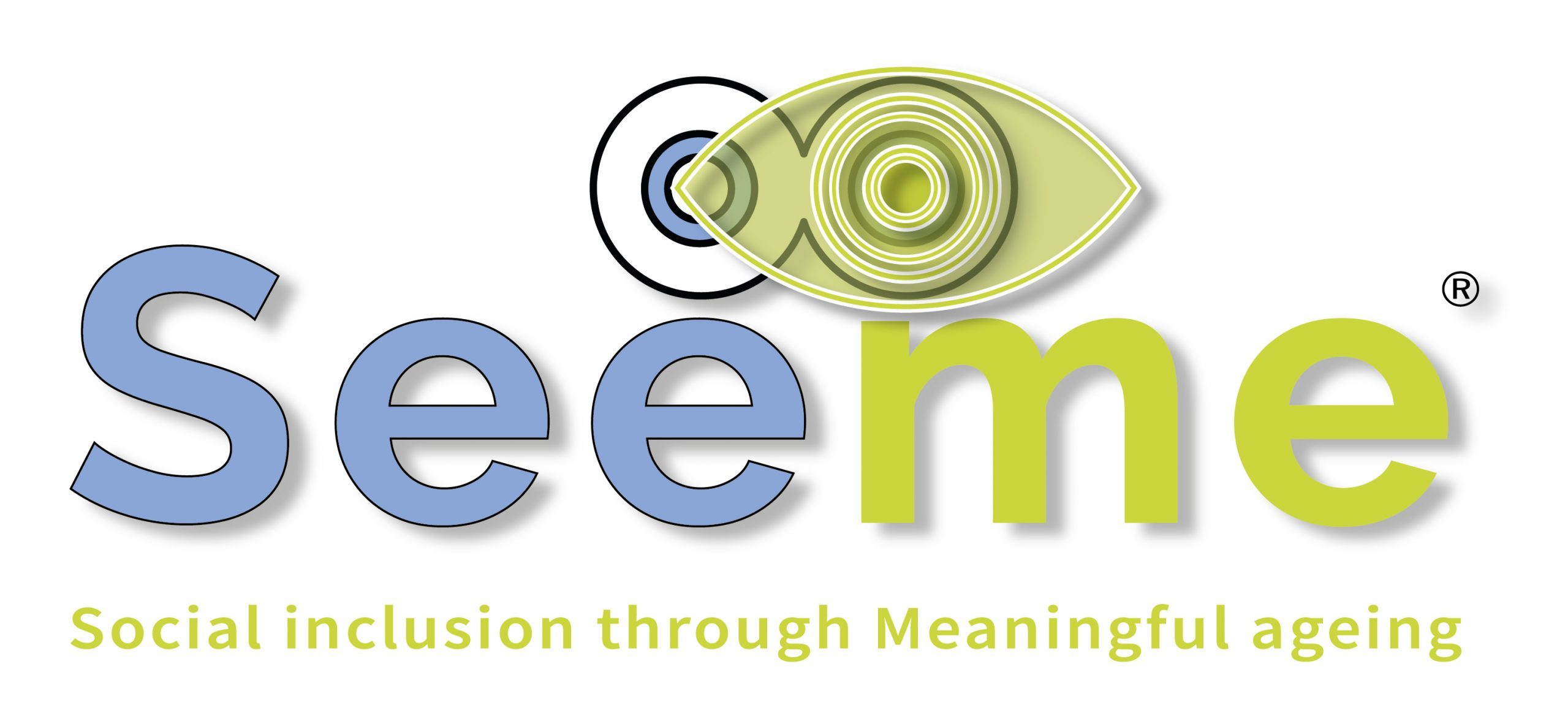Description of output
Concretely, to realise these innovative objectives, the SEE ME project will develop new learning and training materials for carers (informal and formal), volunteers and trainers of carers.
In specific this is realised through 6 intellectual outputs:
- European research report on optimising caregiving skills and competencies by “SEEing social and meaning needs, talents and dreams of older adults”: Report on social and meaning needs of older adults andon caregiving skills and competencies (based on literature and interviews with volunteers, professional carers, informal carers/relatives, management and policy makers and oldest citizens). Mapping of international good practices.
- “Education for SEE ME model”: The model will include tools to develop, set up and evaluate key competencies of adults learning to develop quality trained caregivers (volunteers, professional carers, informal carers/ relatives, management and policymakers) in social and meaning needs of the ageing population.
- “European SEE ME training toolkit”: A training toolkit will be developed, implemented, tested and adapted.
- “European SEE ME training course“: An international 4-day training with the different partners will be organised for volunteers, professional carers, informal carers/relatives, management and policymakers on how to use the toolkit and immediate evaluation of the training toolkit.
- 6 Learning areas: test and implement the European SEE ME training toolkit within their organisations (different care organisations; nursing homes or extra-mural care).
- Cross-national evaluation of the learning-areas: Development of a (self-)evaluation tool. The learning areas will be evaluated. Adjustment of the final training toolkit and training concept of the project. Here the train the trainer concept will be used in disseminating the training and by using the self-evaluation tool, which is also developed in the toolkit. The final evaluation report will be developed and finalised.
Additionaly, an exploitation workshop in each participating country (= multiplier events) will be organised.
“European SEE ME training toolkit”:
- Training material for competence development (in order to be able to detect social and meaningful meaning needs and discovering talents of the older adults) of caregivers.
- Training material for educators/trainers of caregivers on how to use the training toolkit in their training program.
- Training material for management and policymakers within different settings (on how to stimulate/increase competence development (in the SEE ME domains).
- Training material that can be used in both residential and community care organisations.
Background
The population in Europe is ageing, and the number of older adults is growing. Consequently, projections predict an increase in care needs. The literature points towards 2 main challenges. First, older adults with care needs are susceptible to social exclusion. This is, in particular true for older adults with a migration background or in poor financial situations. Second, the focus in professional care is on the medical and physical aspects of care, from a deficit-approach, looking at what older adults cannot do anymore. However, many caregivers are convinced an innovative paradigm-shift is needed towards a positive approach (looking at dreams and talents of older adults) and caring for social and meaning needs.
Target group
- Caregivers: Volunteers, professional caregivers, informal carers and relatives.
- Management and policymakers working in a nursing home, residential care or organisations providing extra-mural care and support.
- Educators/trainers of caregivers.
- Older adults: who are living in a nursing home or receiving extra-mural care (both residential and community projects).
Results and Impact
The project will result in a user-experienced, user-tested and user-friendly training model and toolkit. Awareness and competencies (knowledge, skills and attitudes) will be raised on
- How to care broader than the classical medical-physical paradigm.
- Attuning to the social and meaning needs of older care recipients.
- Starting care from the dreams and talents of older adults to add living pleasure.
Resulting in increased quality of care, quality of life and social inclusion of caregivers and older adults.
